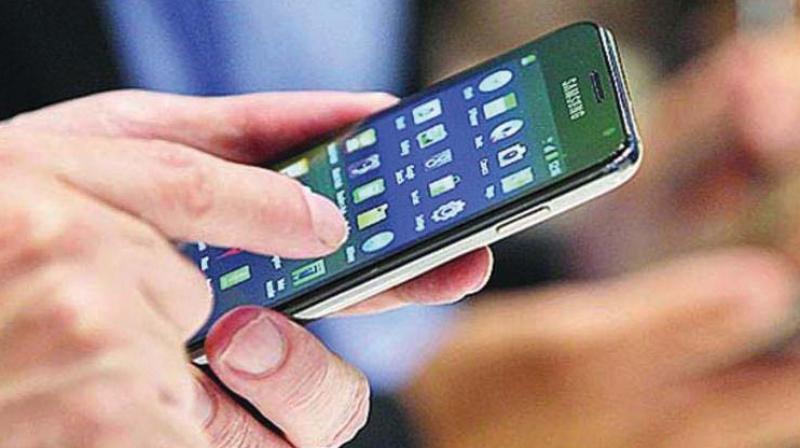South Asia highest in gender gap in use of cellphones
Not only are women 28 per cent less likely to own a phone, they are 57 per cent less likely to connect to the mobile internet than men.

Hyderabad: A recent study has found that South Asia has a 28 per cent gender gap in mobile phone ownership, which is the highest in the world. South Asia comprising India, Pakistan and Bangladesh comprises over 20 per cent of the global population.
Despite being one of the fastest-growing technology markets, South Asia faces one of the largest gender disparities online in the world. Not only are women 28 per cent less likely to own a phone, they are 57 per cent less likely to connect to the mobile internet than men.
Some of this has to do with social attitudes. Recently, 12 villages in Gujarat banned the use of mobile phone for unmarried women saying they should stay away from technology. In 2016, a woman in Uttar Pradesh was slapped with a Rs 21,000 fine by the panchayat as she was seen talking on the mobile phone in public. Sundry politicians have long said that mobile phones “corrupt” women.
The report said the major challenge for women was ensuring their online safety while they participate in discussions. These platforms often turn out to be a medium to harass and abuse women. Examples include research scholar Shehla Rashid and Kargil martyr Captain Mandeep Singh’s daughter Gurmeher Kaur.
Researchers say that such threats are often motivated by the patriarchal norms. The survey showed that 72 per cent of the participants undergo digital abuse such as unwanted messages or the non-consensual release of information about them, especially on social media platforms.
Dr Usha Raman, a communication professor, said, “It’s quite well established that digital access is complicated for women because of the power structure in South Asian society. The culture doesn’t respect women’s spaces as much as men’s spaces.”
She said studies have shown that in rural families in Kutch, Gujarat, that even though the women have mobile phones, access to it is restricted because of the kind of internet pack and amount of data they are able to use.
“In general, women have less privacy and it's more difficult for them to guard the information property,” Dr Raman said.

